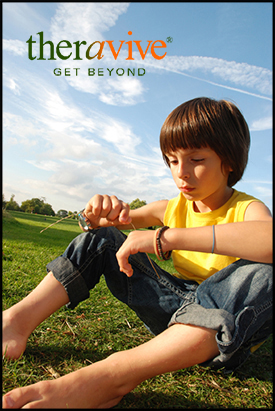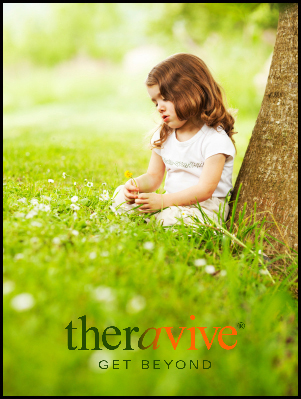 All children get anxious or embarrassed sometimes. Many kids will freeze up when asked to act in a school play or perform a violin solo in front of their family and friends. However, Social Anxiety Disorder goes far beyond a case of the jitters. For children with social anxiety, events that should be fun create real fear and anxiety. A trip to the amusement park is no fun when they are constantly afraid they will do or say something embarrassing. The first day of class is something to be dreaded because they may have to stand up, introduce themselves, and tell their classmates about their summer vacation. This disorder can be debilitating for children and confusing and frustrating for parents and teachers who aren’t sure how to help. With school back in session for many kids, it’s a good time to talk about social anxiety and how it can impact a child’s school performance and peer relationships.
All children get anxious or embarrassed sometimes. Many kids will freeze up when asked to act in a school play or perform a violin solo in front of their family and friends. However, Social Anxiety Disorder goes far beyond a case of the jitters. For children with social anxiety, events that should be fun create real fear and anxiety. A trip to the amusement park is no fun when they are constantly afraid they will do or say something embarrassing. The first day of class is something to be dreaded because they may have to stand up, introduce themselves, and tell their classmates about their summer vacation. This disorder can be debilitating for children and confusing and frustrating for parents and teachers who aren’t sure how to help. With school back in session for many kids, it’s a good time to talk about social anxiety and how it can impact a child’s school performance and peer relationships.
Understanding Social Anxiety Disorder
Children and teenagers with Social Anxiety Disorder have an excessive fear of social and/or performance situations. These kids are overly concerned that they may do something embarrassing or humiliating, or others will think badly of them, or laugh at them. These children constantly feel "on stage," which can lead to a great deal of self-consciousness. Understandably, they try to avoid a situation that may place them in the limelight. According to Anxiety BC (2014) these are some things we know about Social Anxiety Disorder in children:
-
Social Anxiety Disorder often starts during adolescence, an already difficult time for many young people.
-
It can develop suddenly after a stressful or humiliating experience, or slowly over time.
-
An equal number of girls and boys experience social anxiety.
-
Problems associated with Social Anxiety Disorder can include poor school performance, low confidence in social situations, trouble developing and maintaining friendships, and depression (Social Anxiety Disorder, 2014).
Anxiety disorders are some of the most common mental health challenges for kids, but they are also some of the most treatable (Borba, 2014). To help kids with social anxiety, we must recognize when there is a problem. Children may try to hide their symptoms, especially at school. Many kids will have trouble explaining their feelings to adults, but there are some clues to help parents and teachers help identify a possible anxiety disorder (Social Phobia, 2010).
-
Extreme fear of situations involving new people.
-
Anxiety attacks when anticipating to attempting social interactions.
-
Fearfulness with adults and peers. They may become paralyzed with fear.
-
Avoidance of social situations, including crying, complaining, or tantrums to avoid social interactions.
-
Severe stress in routine social situations (talking to an adult, starting a conversation, going to a party).
-
Difficulty concentrating.
-
School refusal because of worries about their performance.
-
Difficulty transitioning from home to school (e.g. they don’t want to go into the school in the morning).
-
Depression, hopelessness, low self-esteem, or thoughts about not wanting to be alive, especially if the child believes there is nothing that can help alleviate their symptoms.
-
Physical symptoms like stomachaches, dizziness, rapid heart rate, and trembling (Social Phobia, 2010).
Understanding that social anxiety is an illness can help parents and children get the help they need to overcome it. It’s also essential for kids to know that they are not “crazy”, and that they have an illness that can be treated. Additionally, it can very helpful for loved ones and teachers to recognize two categories of social situations that can trigger real stress and anxiety for some children and teens, according to Anxiety BC (2014).
 Performance-Based Anxiety (situations where kids feel they are being observed by others):
Performance-Based Anxiety (situations where kids feel they are being observed by others):
-
Public Speaking (presenting a book report to the class)
-
Asking questions in class, or reading aloud
-
Eating in front of others
-
Using public restrooms
-
Writing on the blackboard in front of the class
-
Performing in public (singing, dancing, playing a sport)
-
Entering a room when others are already seated
-
Ordering food in a restaurant
Interaction-Based Anxiety (situations requiring interaction and relationship-building):
-
Meeting new people for the first time
-
Talking to classmates or friends, especially in a group
-
Inviting friends to do things
-
Going to a birthday party, swimming, or other social event
-
Talking to adults
-
Dating
-
Expressing opinions
-
Talking on the phone
-
Working in a group
Any of these things can strike terror into the heart of a child or teen with social anxiety. They see other kids doing these things with relative ease, and this negatively impacts the way they feel about themselves. They can feel different, left out, and like there is something wrong with them. This type of anxiety can interfere with a child’s academic performance, and their ability to develop healthy relationships with peers and adults. Parents naturally want to help when they see their child struggling with anxiety, but they often aren’t sure what to do. Here are a few ideas from the School Psychiatry Program and Massachusetts General Hospital (2014):
-
Understand the disorder. This will help loved ones sympathize with what the child or teen is experiencing.
-
Listen to the child or teen’s feelings. Kids with social anxiety can feel isolated and develop depression.
-
Keep calm with the child or teen is upset about a social situation.
-
Help the child remember how they survived the last social encounter, and came out if it okay.
-
Anticipate transition times. Transitions from home to school or from home to a social activity can create apprehension.
-
Teach the child some relaxation techniques like deep breathing, counting to 10, or visualizing a safe place.
-
Support the child’s attempts to engage in school or social activities.
-
Move forward in small steps, allowing the child to build on previous successful social encounters.
-
Encourage the child to help figure out ways to help themselves. This will also develop their problem-solving skills.
-
Praise the child’s efforts to use their coping skills and manage their symptoms of anxiety. Even small efforts and progress should be celebrated (Social Phobia, 2010).
It can be difficult to know if your child has Social Anxiety Disorder, but if you are concerned, it’s important to get a professional opinion. Social anxiety responds very well to treatment, and children who don’t get the help they need with this painful disorder can develop more serious anxiety and depression that creates impairment in all areas of their life.
Treating Social Anxiety Disorder
One of the goals of counseling is to help the child recognize and challenge thoughts that create or increase anxiety. Cognitive-Behavioral Therapy is a type of therapy that helps children learn skills to control their anxiety and unwanted behaviors. Another type of therapy that is very successful in the treatment of social anxiety is exposure therapy. Gradually exposing the child to the feared situation, with support, can reduce anxiety. For some children, medications like Selective Serotonin Reuptake Inhibitors (SSRIs) can also be helpful, and most children don’t have to take medication for a long period of time (Social Phobia, 2010).
If your child is struggling with Social Anxiety, it’s important to know that you are not alone. It is a very common disorder that can be treated effectively. Listening to your child, and providing support and encouragement will go a long way toward helping your child recover from this disorder. Social anxiety does not have to limit your child or keep them on the sidelines.
_________________________________________________________________________________________________________________________________
Borba, M. (2014). Michele Borba: Calming Kid’s School Anxieties and Helping Them Be BRAVE. Retrieved August 21, 2014, from http://micheleborba.com/blog/michele-borba-how-to-calm-your-child-school-anxieties-and-help-them-be-brave/
Social anxiety disorder. (2014). Retrieved August 21, 2014, from http://www.anxietybc.com/parent/social.php
Social phobia - social anxiety disorder in children and teens. (2010). Retrieved August 21, 2014, from http://www2.massgeneral.org/schoolpsychiatry/info_socialphobia.asp